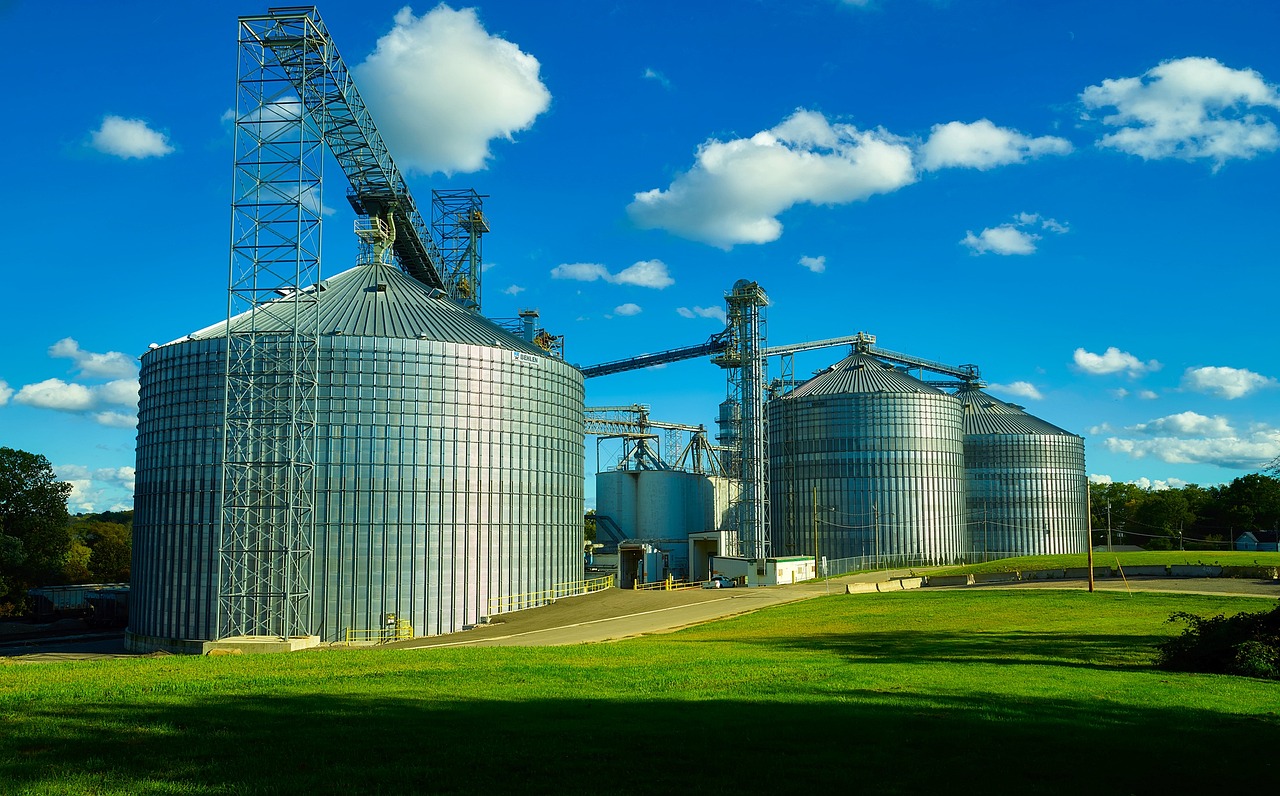
Storage silos are large containers used for storing and dispensing a wide range of bulk materials, such as grains, powders, pellets, and liquids. Silos are commonly used in the agriculture, food processing, chemical, and manufacturing industries. Storage Silos offer many benefits over other forms of bulk storage, including protection against the elements, efficient use of space, and the ability to handle large quantities of materials.
Introduction to Storage Silos
Silos come in various shapes, sizes, and materials. The most common silo shapes include cylindrical, rectangular, and conical. Cylindrical silos are the most popular shape because they offer the most storage capacity for a given footprint. Rectangular silos are useful when space is limited, and they are often used for storing materials in tight areas. Conical silos are commonly used for dispensing materials, as the tapered bottom allows for easy and precise flow control.
Silos can be made from a variety of materials, including steel, concrete, and plastic. Steel silos are the most popular choice due to their durability and strength, while concrete silos offer excellent protection against the elements. Plastic silos are often used for storing food and pharmaceuticals, as they are resistant to corrosion and are easy to clean.
Silos can be either open or closed. Open silos are typically used for storing materials that are not sensitive to the elements, such as grains and other agricultural products. Closed silos are used for storing materials that require protection from moisture, air, and other contaminants, such as chemicals and pharmaceuticals.
In addition to their storage capacity, silos can be equipped with a variety of features and accessories to optimize their performance. These include ventilation systems, temperature and humidity control systems, and automated dispensing systems.
Significant advantages
One of the most significant advantages of using silos is that they can be customized to meet the specific needs of each industry and application. For example, a food processing plant may require a silo with food-grade lining and advanced temperature control systems, while a chemical plant may require a Ball Mills and silo with high-strength construction and special safety features.
Overall, storage silos offer many benefits to industries that require efficient and effective bulk storage and dispensing systems. With their customizable features and durable construction, silos can help businesses improve their operations and reduce costs.
Storage silos systems are widely used in a variety of industries for storing and dispensing bulk materials.
Here are some of the most common applications and uses of storage silos systems:
- Agriculture: In the agricultural industry, silos are commonly used for storing grains, seeds, and other agricultural products. They can protect these materials from pests, moisture, and other environmental factors, helping to maintain their quality and value.
- Food Processing: Silos are also used extensively in the food processing industry for storing ingredients such as flour, sugar, salt, and other dry goods. They can be used to store and dispense liquids such as oils, syrups, and other ingredients used in food production.
- Chemical Manufacturing: The chemical industry uses silos for storing various chemicals such as solvents, acids, and other hazardous materials. The closed silos with advanced safety features can ensure the safety of workers and the environment while storing and dispensing these chemicals.
- Plastics and Polymers: Silos are used in the plastics and polymer industry for storing resins, pellets, and other materials used in manufacturing plastic products. These materials require controlled conditions to maintain their quality and avoid degradation.
- Pharmaceuticals: In the pharmaceutical industry, silos are used for storing and dispensing powders, granules, and other materials used in the production of medicines. The closed silos with specialized coatings and lining can protect the stored materials from contamination and degradation.
- Mining and Minerals: Silos are used for storing and dispensing minerals such as coal, ores, and minerals. The materials can be extracted from the silos when needed and transported to processing plants.
- Energy: Silos are used in the energy industry for storing coal and other solid fuels used in power plants. They are also used for storing biomass and other renewable energy sources.
Bottom Line
In addition to these industries, silos are also used in construction, textiles, and other manufacturing industries. The uses and applications of silos are diverse and varied, and they are essential for storing and dispensing materials in a safe and efficient manner.
